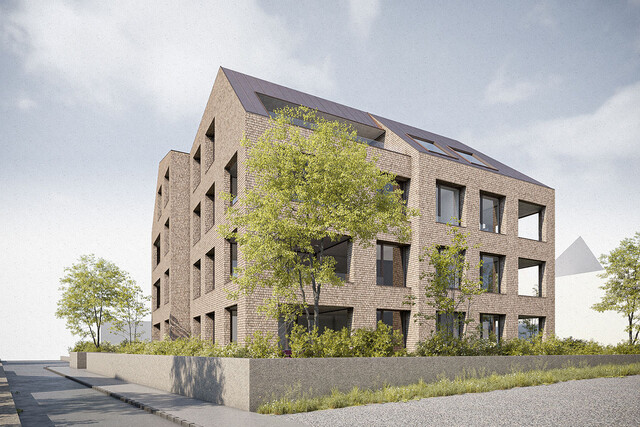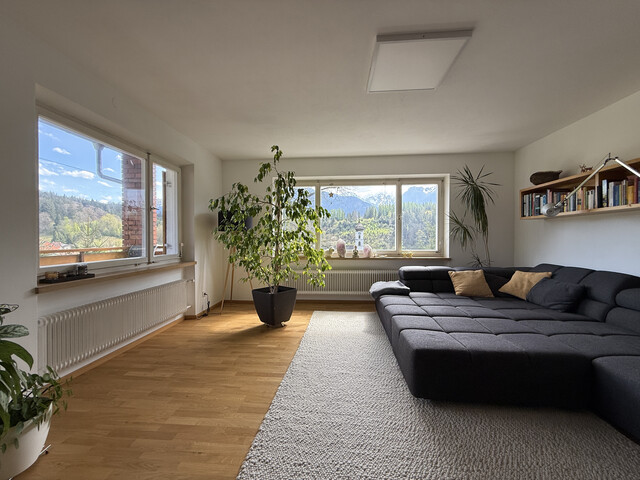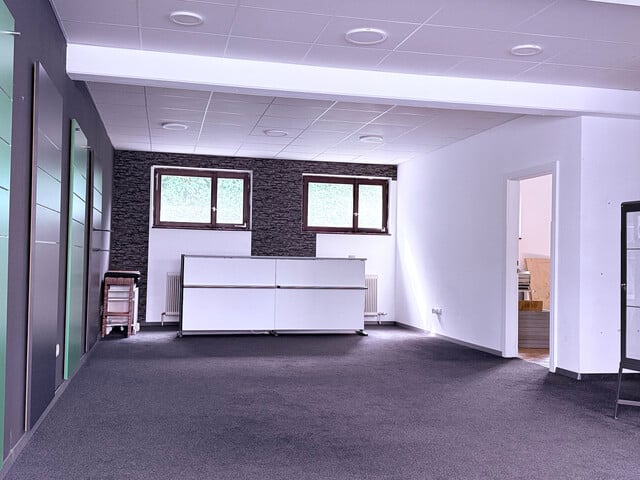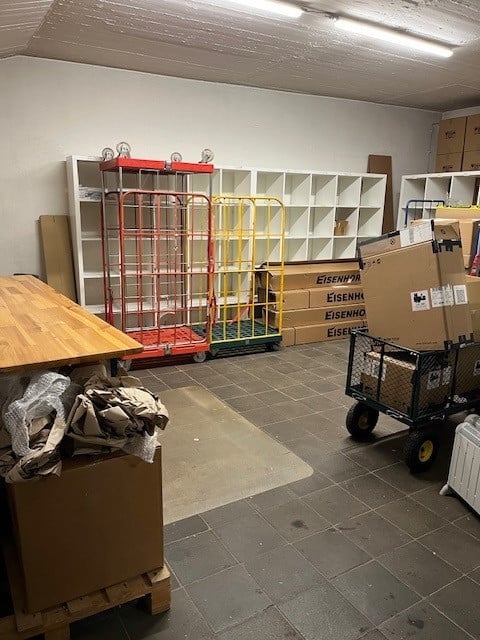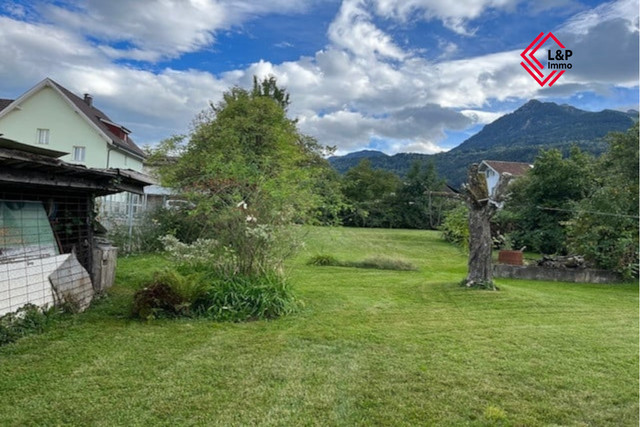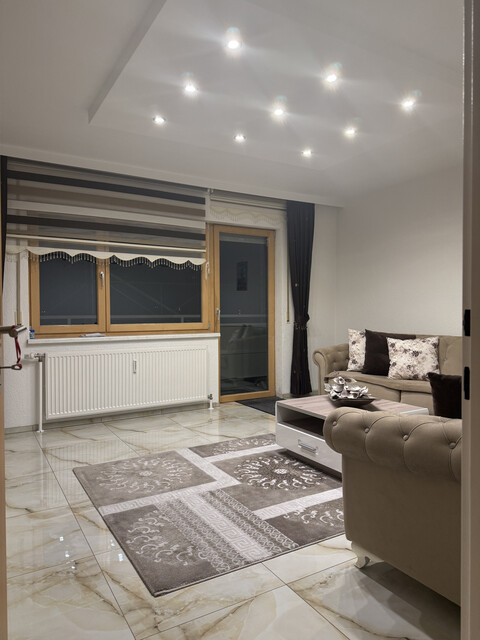Freedom of the Press: Austria Improves in Press Freedom Index
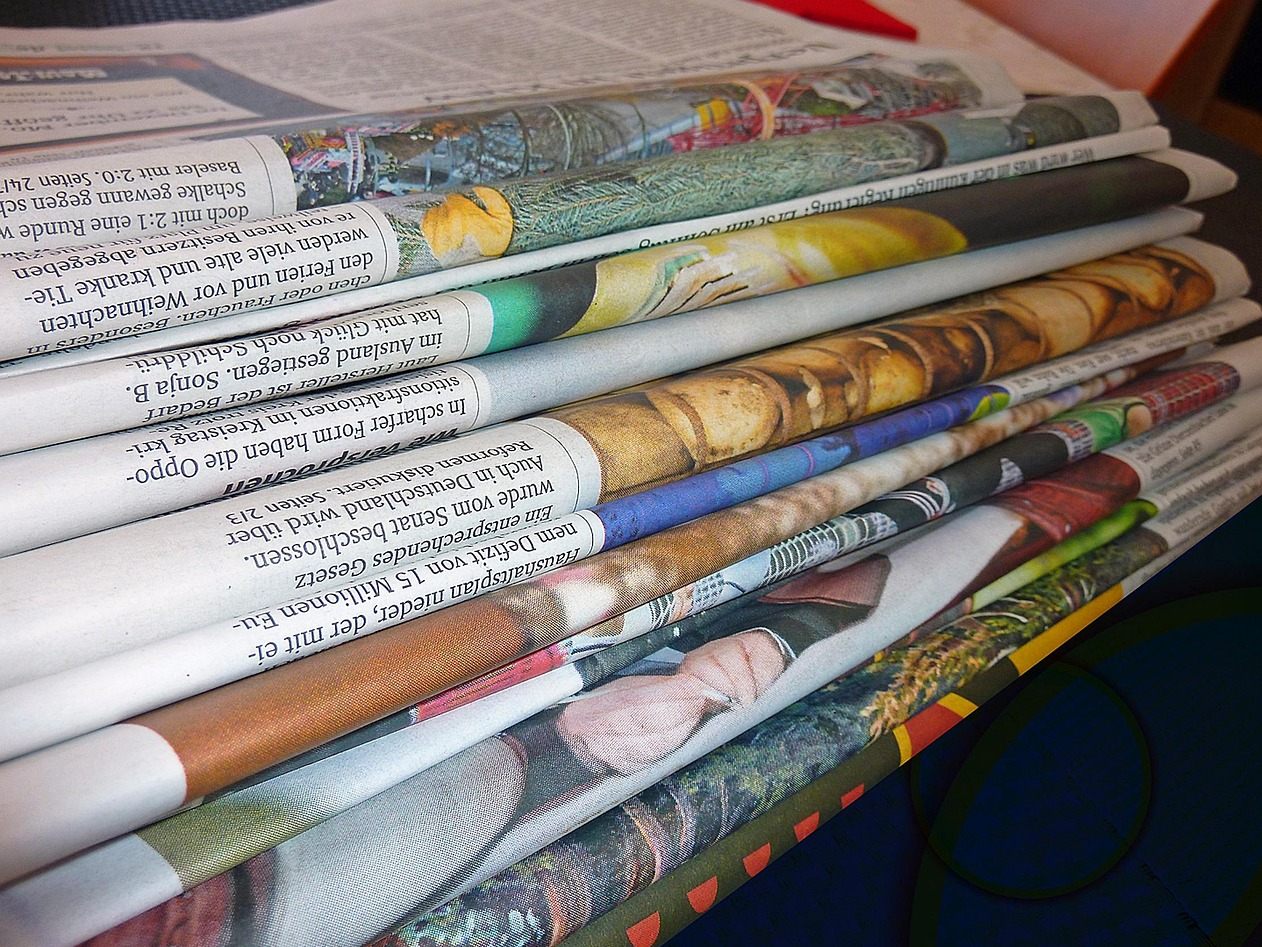
With 78.12 points, Austria ranks 22nd among 180 evaluated countries. This represents an improvement of ten ranks or 3.43 points. The situation is still rated as "satisfactory." However, the president of RSF Austria, Fritz Hausjell, warns that the "serious situation" has not yet been overcome.
Press Freedom: Austria Not in Top 10 of Press Freedom Index Since 2015
At 22nd place, Austria ranks as high as it has since 2021 (17th place). It fell out of the top ten in 2015. With the current result, Austria is in the middle of the countries rated as "satisfactory," between Canada and Spain. Switzerland (9), Czech Republic (10), and Germany (11) are ranked higher. Only countries in Northern Europe made it into the top group where press freedom is considered "good": Norway, Estonia, Netherlands, Sweden, Finland, Denmark, and Ireland.
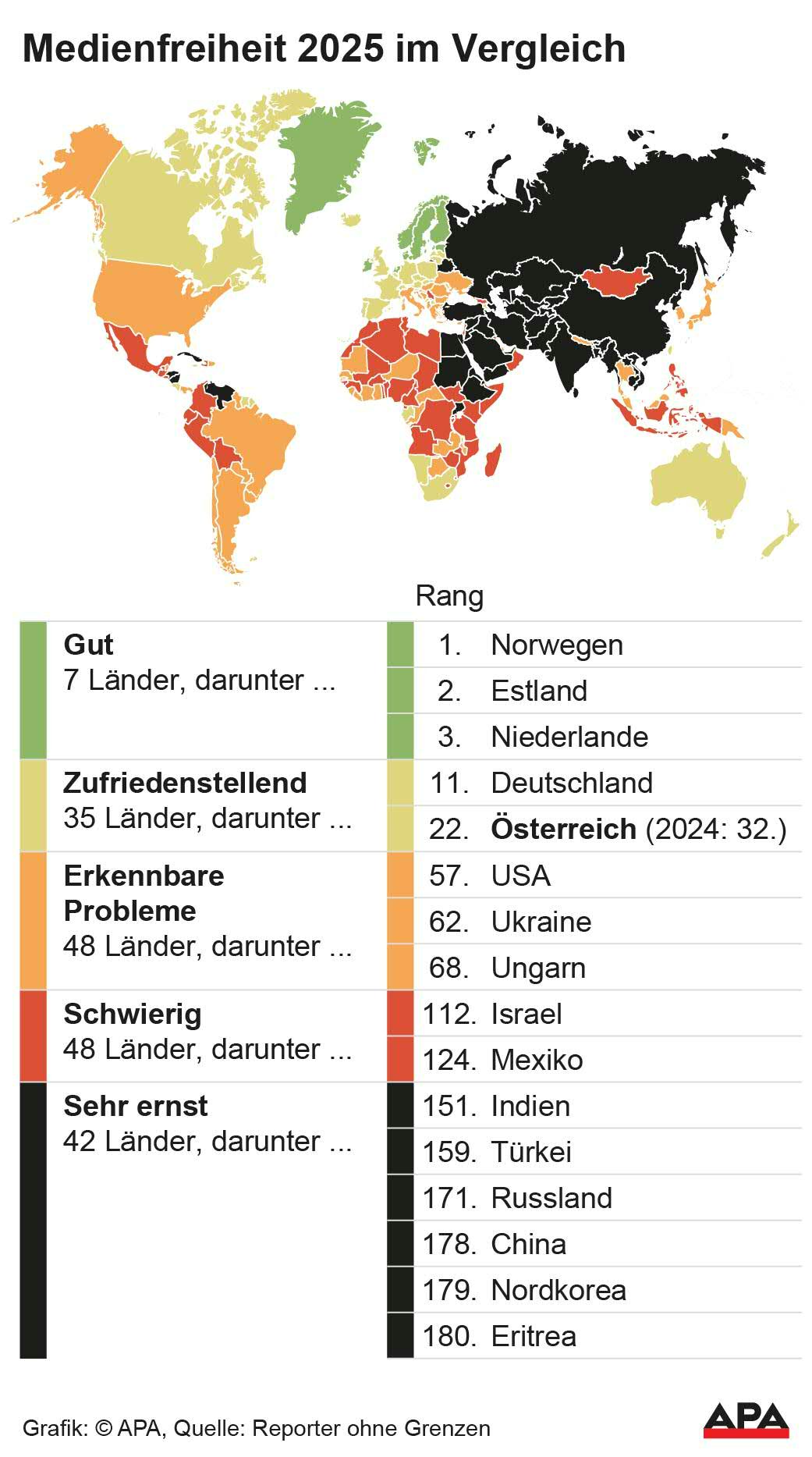
Bleak Situation for Press Freedom Worldwide
Globally, the situation is bleak and has been classified as "difficult" by RSF for the first time. The average score of all countries fell below 55 points. Half of the countries surveyed thus have a "difficult" to "very serious" situation. At the bottom of the ranking are Eritrea, North Korea, China, Syria, and Iran. Russia dropped nine places to rank 171. Turkey landed at 159th place. There were significant deteriorations in Israel (112th place), Kosovo (99), Argentina (87), and Croatia (60). According to a statement, physical attacks on journalists are the most visible violations of press freedom, but economic pressure is a major, insidious problem. The economic indicator of the RSF World Index is lower than ever before. Media companies in 160 countries achieve financial stability only with difficulty or not at all. In almost a third of the countries worldwide, news agencies have been closed due to financial difficulties. "Without economic independence, there can be no free press," warned Anne Bocandé, editor-in-chief of RSF International, in a statement.
Press Freedom: News Deserts and Media Concentration
In the USA (57th place), vast regions are already turning into news deserts where there are no local media anymore. Advancing media concentration also contributes to the deterioration of the economic indicator. In 46 countries, media ownership is highly concentrated, and in some countries, media are completely controlled by the state. According to RSF, Russia, Hungary, and Georgia are of great concern. But even in relatively well-ranked countries like Australia, Canada, and the Czech Republic, the NGO sees a need for action. The Press Freedom Index is based on five indicators (political context, economic context, legal context, socio-cultural context, and safety), with media journalists, communication scientists, and media lawyers assessing the situation in the country. Austria improved in all five indicators compared to the previous year.
Funding Pots Lead to Increase in Press Freedom Index
The largest increase (4.53 points to 64.7 points) was in the economic context, which according to Hausjell, is due to higher support payments in the area of quality journalism and digital transformation, as well as the establishment of the ORF household levy. However, support for new and especially digital media is almost completely lacking, warned the RSF Austria President, and critically noted that tabloid media continue to receive the largest share of state support. According to the evaluators, Austria performed best in terms of safety (92.55 points). This is specifically due to the lower number of protests and thus fewer violent attacks on journalists, said RSF Austria Secretary General Martin Wassermair. In the legal context, the situation improved by 3.5 points to 81.97 points, which is partly due to the Freedom of Information Act. The socio-cultural pillar also improved (78.77 points). However, a part of the population is increasingly skeptical to dismissive towards journalistic media, which according to Hausjell is "due to the agitation" of the FPÖ, which tries to delegitimize critical journalism as "lying press" or "system media".
Press Freedom: FPÖ-ÖVP Negotiations as "Very Sharp Warning"
The political context scored 72.59 points. "We must not forget that with the coalition negotiations between the Freedom Party and the People's Party in January, Orbán-like conditions came dangerously close to Austria," said Hausjell. It must be a "very sharp and lasting warning" for the coming years. Wassermair sees it as a major but urgent challenge to increase appreciation for the media and their value for democracy. "We are well advised not to sit back just because Herbert Kickl and his ideas of media policy have been spared us. Media policy must be brought out of its stepmotherly existence. For a resilient media landscape, money must be invested," said Wassermair.
Political Reactions to Improvements in Press Freedom
"The improvement in the ranking is encouraging, but not a free pass," responded NEOS media spokesperson Henrike Brandstötter to Austria's placement. There remains much to be done to sustainably secure the media location and strengthen independent journalism. Brandstötter called for a "depoliticization" of the ORF, a comprehensive strengthening of media literacy in schools and adult education, as well as targeted support for media start-ups. The federal government is also working on stronger cooperation between ORF and private media houses, said the NEOS politician.
Vice Chancellor and Media Minister Andreas Babler (SPÖ) emphasized that being in 22nd place is not satisfactory. "This is not the place where a democratic country like ours should stand - in 2015 we were still in the top 10," he recalled in a statement. Austria should once again become a model nation in terms of press freedom, said Babler, who recalled government measures to promote the independence of the ORF or media diversity.
The Green Deputy Club Chairwoman Sigrid Maurer particularly highlighted the funding laws that were passed in the last legislative period, in which her party co-governed. "The media policy improvements of recent years bear a clear green signature. We are pleased that this circumstance is now also reflected in the press freedom ranking," said Maurer in a statement.
ÖVP Member of the European Parliament Lukas Mandl referred in his statement on the International Day of Press Freedom to the importance of free media for democracy: "A democracy without participation becomes sleepy. And defense is of central importance in times of attacks from within and without. The defense of democracy absolutely requires press freedom. And democratic participation needs free media as a forum with fairness," said Mandl.
(APA/Red)
This article has been automatically translated, read the original article here.
Du hast einen Hinweis für uns? Oder einen Insider-Tipp, was bei dir in der Gegend gerade passiert? Dann melde dich bei uns, damit wir darüber berichten können.
Wir gehen allen Hinweisen nach, die wir erhalten. Und damit wir schon einen Vorgeschmack und einen guten Überblick bekommen, freuen wir uns über Fotos, Videos oder Texte. Einfach das Formular unten ausfüllen und schon landet dein Tipp bei uns in der Redaktion.
Alternativ kannst du uns direkt über WhatsApp kontaktieren: Zum WhatsApp Chat
Herzlichen Dank für deine Zusendung.


